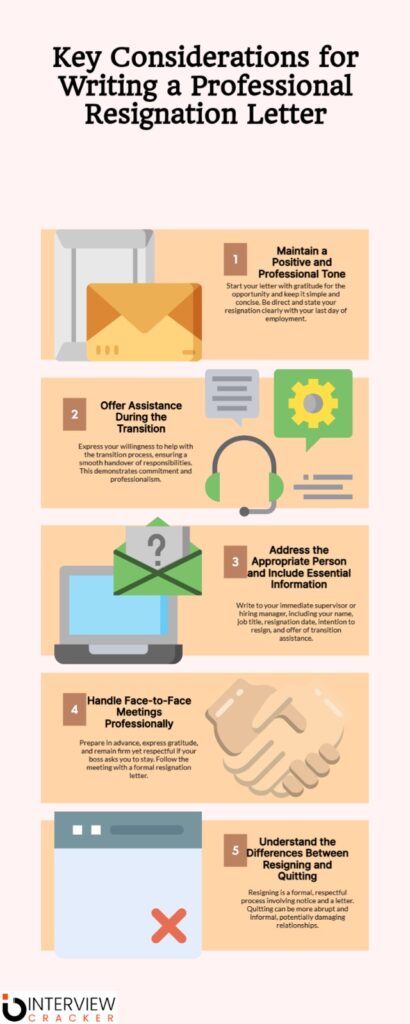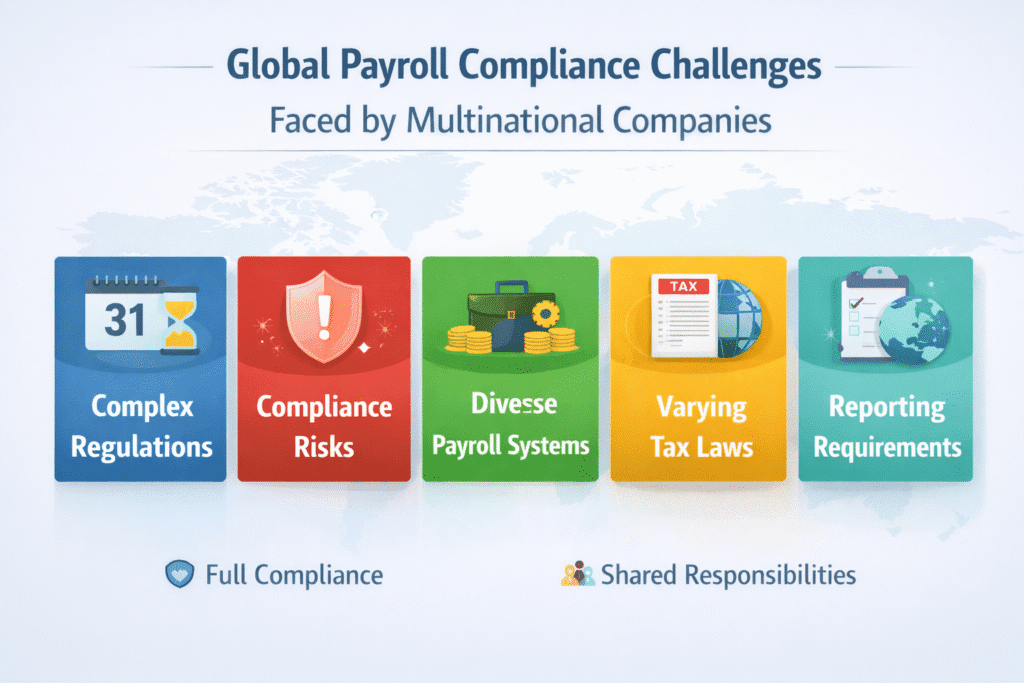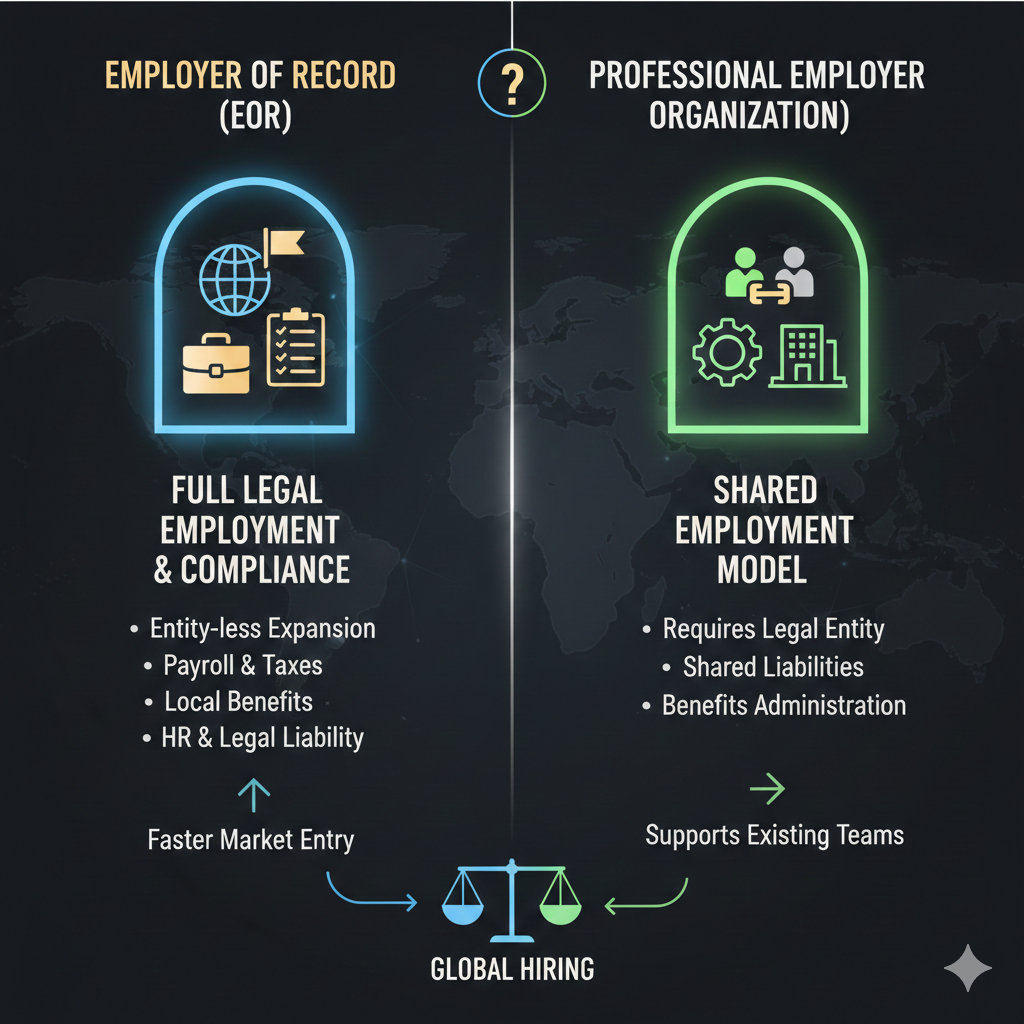In the fast-paced world of professional growth and development, there comes a time when we must bid adieu to our current roles and embark on new and exciting ventures. It can be a difficult decision to leave a job that you have invested so much time and effort in, but sometimes it’s necessary for personal and professional growth. Crafting a resignation letter may seem like a mundane task, but it is an opportunity to leave a lasting impression on your soon-to-be former employer. Saying goodbye gracefully is not only a sign of professionalism but also a reflection of your character and integrity. You may be feeling anxious about how your colleagues and boss will react, and what you should include in the letter. It’s important to approach this task with care and professionalism, in order to ensure that you leave on good terms with your colleagues and preserve your professional reputation.
Table of Contents
ToggleWriting a Resignation Letter that Leaves a Lasting Impression
A well-crafted resignation letter can serve as a bridge, maintaining positive relationships and leaving the door open for future opportunities.
In this article, we will explore the art of saying goodbye gracefully, providing you with valuable insights and tips on how to compose a resignation letter that not only expresses your gratitude but also showcases your commitment to a smooth transition.
Before Writing a Resigning Letter, Check If Your resume is ATS-Friendly or not?
Why Writing a Resignation Letter is Important?
Writing a resignation letter is one of the most important steps in the process of leaving a job, especially if you are a salesperson. It is a formal way to inform your employer about your decision to leave the company. It is also a way to maintain a good relationship with your employer and colleagues, even after you have left the company. A well-written resignation letter can help you leave on good terms, which is important for your future career prospects. It is also a professional way to end your employment and show your appreciation for the opportunity to work with the company. Moreover, writing a resignation letter is a way to document your departure from the company, which can be helpful in case you need to refer to it in the future. Therefore, it is important to take the time to write a well-crafted resignation letter that reflects your professionalism, gratitude, and respect for the company and its staff.

What to Include in a Resignation Letter?
When writing a resignation letter, it’s important to include certain key components to ensure that the message is clear, professional, and respectful.
First and foremost, you should be able to start with a clear statement of your intention to resign. This should be followed by the date of your last day of work, which should be at least two weeks from the date of your letter, to give your employer ample time to prepare for your departure.
It’s also important to express your gratitude for the opportunities that have been presented to you during your time at the company, as well as your appreciation for the support and guidance provided by your colleagues and superiors. This will help to ensure that your departure is viewed in a positive light, and that you leave on good terms.
In addition to expressing gratitude, it’s also important to briefly explain your reasons for leaving. This can be done diplomatically, without being overly negative or critical. Keep in mind that you never know when you may encounter your former colleagues or superiors in the future, so it’s best to avoid burning bridges.
Finally, close your letter by offering your help in ensuring a smooth transition of your responsibilities to your successor. This will demonstrate that you are committed to leaving your employer in a positive position and that you value the relationships you have built during your time at the company.
Basic Structure of a Resignation Letter
A resignation letter is an official document that should be written in a professional and respectful tone. The basic structure of a resignation letter should include a clear and concise opening statement that explains your intention to resign from your current position. This statement should include the date of your resignation and your final day of work.
The body of the letter should provide a brief explanation of your reasons for resigning. This can be a simple statement or a more detailed explanation, depending on your personal preference. Be sure to express your gratitude for the opportunity to work for the company and any positive experiences you have had during your time in the position.
In the closing paragraph, it is important to reaffirm your intention to leave the company and provide any necessary details about the transition process. This can include information about any outstanding projects or clients that need to be handed over to another team member.
Finally, be sure to express your willingness to assist in any way possible during the transition period and thank your employer for their understanding and support throughout the resignation process. Remember, leaving a company with grace and professionalism can help to maintain positive relationships and leave the door open for future opportunities.

Tips for Writing a Professional and Respectful Resignation Letter
When resigning , it’s important to do so in a professional and respectful manner. Writing a well-crafted resignation letter is a great way to achieve this. Here are some tips to help you write a letter that shows respect and professionalism:
1. Start with a positive tone:
Begin your letter with a positive tone and express gratitude for the opportunity to work with your employer. Thank them for the support they have provided you during your tenure.
2. Keep it simple and concise:
The resignation letter should be brief and to the point. Avoid adding unnecessary details that could distract from the overall message.
3. Be clear and direct:
State clearly that you are resigning from your position and provide a date of your last day of work. This helps to ensure that everyone is clear about the timeline of your departure.
4. Offer assistance during the transition:
Let your employer know that you are available to assist with the transition process and ensure that your responsibilities are passed on to someone else. This shows that you are committed to making the process as smooth as possible.
5. Express your appreciation:
End your letter by expressing your appreciation again. This will leave a positive impression on your employer and can help ensure that you leave on good terms.
By following these tips, you can write a resignation letter that is professional, respectful, and leaves a positive impression on your employer.
6. Preparing for the Transition Period
Preparing for the transition period is crucial when it comes to resigning. You don’t want to leave your employer in a difficult spot by leaving without adequate notice or preparation.
Firstly, make sure that you are familiar with your employer’s policies regarding notice periods and handover procedures. Some companies may require a longer notice period, while others may be more flexible.
Once you know your notice period, start planning for the transition period. This may include training and mentoring your replacement, documenting key processes and procedures, and transferring important client relationships.
It’s also important to tie up any loose ends and complete any outstanding tasks before you leave. This will help ensure a smoother transition and leave a good impression on your employer.
Finally, maintain a positive attitude and remain professional throughout the transition period. Your employer and colleagues will appreciate your efforts to make the transition as seamless as possible.
7. Staying in Touch With Your Colleagues After Leaving
Even though you may have left your job, it’s important to stay in touch with your colleagues. You never know when you may need a reference or to call upon your former colleagues for help.
Keeping in touch with former colleagues is also a great way to stay in the loop about new opportunities, industry news, and even job openings.
There are several ways to stay in touch with your colleagues after leaving your job. Consider connecting with them on LinkedIn or other professional social media platforms. You can also follow your former company’s social media accounts to stay up-to-date with their latest news and developments.
Another way to stay connected is to attend industry events or conferences where you can meet up with former colleagues and catch up on the latest happenings.
Remember to be genuine in your communications and show a continued interest in your former colleagues’ careers. By staying in touch, you’ll be able to maintain valuable relationships and potentially open up new opportunities for yourself in the future.
8. Conclusion And Final Thoughts on the Resignation Process
In conclusion, resigning can be a daunting and nerve-wracking process, but it doesn’t have to be. With the right preparation and approach, you can make the transition as smooth as possible for yourself, your team, and your employer. Remember to always be professional, respectful, and honest throughout the resignation process.
It’s also important to keep in mind that resigning doesn’t mean burning bridges with your employer or colleagues. Maintaining positive relationships after leaving a job can be beneficial in the long run, whether it’s for future job opportunities or networking purposes.
9. How to Handle a Face-to-Face Meeting With Your Boss while resigning?
When it comes to resigning, a face-to-face meeting with your boss is often the best way to handle the situation. This shows your boss that you respect them and the company, and it allows you to have a personal conversation about your reasons for leaving.
Make sure you prepare for the meeting ahead of time. Think about what you want to say and how you want to say it. Consider the reasons why you are leaving and be ready to explain them clearly and calmly. Remember to be honest, but also be professional and respectful.
During the meeting, be sure to express your gratitude for the opportunities you have had while working for the company. This could include thanking your boss for the support they have given you, or acknowledging the training and development opportunities you have had.
If your boss asks you to stay, be clear and concise about your decision. Remember that you have already made up your mind to leave, so it’s important to be firm but respectful in your response.
It’s a good idea to follow up the meeting with a written resignation letter, as this will provide a formal record of your resignation. In the letter, you can reiterate your reasons for leaving and express your gratitude once again. This will help ensure that the process is as smooth and professional as possible.

Resignation Letter Format/Template | Sample Resignation Letter
If you are unsure how to write a resignation letter, here is a sample template that you can use to guide you:
[Your Name]
[Your Address]
[City, State ZIP Code]
[Your Email]
[Today’s Date]
[Employer’s Name]
[Employer’s Address]
[City, State ZIP Code]
Dear [Employer’s Name],
I am writing to inform you that I am resigning from my position as [Your Position] at [Company Name]. My last day of work will be [Date of Resignation].
I have greatly valued my time at [Company Name] and the experiences I have gained during my tenure. However, after much consideration, I have decided to pursue a new opportunity that aligns more with my personal and professional goals.
I want to thank you and the entire sales team for their support and guidance during my time here. I have learned a lot from my colleagues and will always treasure the relationships I have built.
I am committed to ensuring a smooth transition during my departure. I am available to assist with the handover of my responsibilities and to answer any questions the sales team may have.
Thank you again for the opportunity to work with such a great organization. I wish the company and sales team continued success.
Sincerely,
[Your Name]
Common Mistakes to Avoid in a Resignation Letter
Resigning from a job can be a challenging task, and it’s essential to get it right. Writing a resignation letter may seem like an easy task, but many people make mistakes that could hurt their professional reputation. Here are some common mistakes people make in their sales resignation letter:
1. Being overly emotional – It’s essential to keep in mind that a resignation letter is a formal document, and it should not contain emotional outbursts. Avoid using phrases like “I can’t take this anymore” or “I’ve had enough.”
2. Criticizing the company or colleagues – This is never a good idea. Avoid criticizing the company or colleagues in your resignation letter. Instead, focus on the positive aspects of your time with the company and express gratitude for the opportunities you had.
3. Not giving enough notice – It’s customary to give at least two weeks’ notice before leaving a job. Failing to do so can make you look unprofessional and can strain relationships with colleagues and managers.
4. Not offering to help with the transition – It’s essential to offer to help with the transition process. This could include training your replacement, helping to transfer files, and providing any other necessary information.
5. Being too informal – While it’s important to be professional, it’s also important to strike the right tone. Avoid using overly formal language, but also avoid being too informal or using slang.
By avoiding these common mistakes, you can write a sales resignation letter that leaves a positive impression and helps you maintain your professional reputation.
2 Weeks from Today Resignation Letter Sample:
Dear [Supervisor’s Name],
I am writing to formally resign from my position at [Company Name], effective two weeks from today, [last working day, date].
I am grateful for the opportunities and experiences I have gained during my time here. I will do my best to ensure a smooth transition.
Thank you for your support and understanding.
Sincerely,
[Your Name]
[Job Title]

Frequently Asked Questions About Resignation Letter
Who to write a resignation letter?
You should write your resignation letter to your immediate supervisor, or the person who has hired you. If you are unsure of who to address your letter to, you can ask your HR department for guidance.
How to write my resignation letter?
A good resignation letter should be brief, professional, and to the point. It should include the following information:
- Your name
- Your job title
- The date of your resignation
- A statement of your resignation
- Explain / Express your final day of work
- A thank-you for the opportunity
- An offer to help with the transition
How to write a short , polite resignation letter?
A simple resignation letter can be as short as two sentences. Here is an example of short resignation letter:
Dear [Supervisor’s name],
I am writing to inform you of my decision to resign from my position as [job title] at [company name]. My last day of employment will be [date].
Thank you for the opportunity to have worked at [company name] for the past [number] years.
Sincerely,
[Your name]
How to write a resignation letter to my employer/ manager?
To write a resignation letter to your employer or manager, you can follow these steps:
Start by addressing the letter to your supervisor or manager.
State your intention to resign from your position.
Provide your last day of employment.
Thank your employer for the opportunity and experience.
Offer to help with the transition process.
How to write a simple resignation letter- Sample?
A simple resignation letter can be as short as two sentences. Here is simple resignation letter sample:
Dear [Supervisor’s name],
I am writing to inform you of my decision to resign from my position as [job title] at [company name]. My last day of employment will be [date].
Thank you for the opportunity to have worked at [company name] for the past [number] years.
Sincerely,
[Your name]
How to write a resignation letter for a job you hate? | How do I resign from a toxic job?
If you are resigning from a job you hate, you should still write a professional and respectful resignation letter. You can follow the steps below:
Start by addressing the letter to your supervisor or manager.
State your intention to resign from your position.
Provide your last day of employment.
Thank your employer for the opportunity and experience, even if you didn’t enjoy the job.
Offer to help with the transition process.
Here is an example of a resignation letter for a job you hate:
Dear [Supervisor’s name],
I am writing to inform you of my decision to resign from my position as [job title] at [company name]. My last day of employment will be [date].
I have accepted a new position at [new company name] that is a better fit for my skills and interests. I am grateful for the opportunity to have worked at [company name] for the past [number] years and I learned a lot during my time here.
I would be happy to help with the transition process during my remaining time at the company. Please accept this letter as formal notification of my resignation.
Sincerely,
[Your name]
How to write a resignation letter for a job you love?
If you are resigning from a job you love, you may be feeling a range of emotions, from sadness to gratitude. It is important to be honest about your feelings in your resignation letter, but to also maintain a professional tone.
Here are some tips for writing a resignation letter for a job you love:
Let’s face to write a resignation letter for a job you love:
- State your intention to resign clearly and concisely.
- Explain why you are resigning, but avoid being negative or critical of your employer.
- Thank your employer for the opportunity and experience.
Offer to help with the transition process.
Here is an example of a resignation letter for a job you love:
Dear [Supervisor’s name],
It saddens me to inform you of my decision to resign from my position as [job title] at [company name]. My last day of employment will be [date].
I have accepted a new position at [new company name] that is a great opportunity for me to grow my career. However, I will miss working here and I am grateful for the opportunity to have worked at [company name] for the past [number] years.
I have learned so much during my time here and I am grateful for the support and guidance I have received from you and my colleagues. I wish you and the company all the best in the future.
I would be happy to help with the transition process during my remaining time at the company. Please accept this letter as formal notification of my resignation.
Sincerely,
[Your name]
How to write a resignation letter for personal reasons?
If you are resigning from a job for personal reasons, you should still write a professional and respectful resignation letter. You can follow the steps below:
Start by addressing the letter to your supervisor or manager.
State your intention to resign from your position.
Provide your last day of employment.
Explain the personal reasons for your resignation, but avoid being too detailed.
Thank your employer for the opportunity and experience.
Offer to help with the transition process.
Here is an example of a resignation letter for personal reasons:
Dear [Supervisor’s name],
I am writing to inform you of my decision to resign from my position as [job title] at [company name]. My last day of employment will be [date].
I am resigning for personal reasons that I would prefer not to discuss. However, I want to assure you that this decision was not made lightly.
I am grateful for the opportunity to have worked at [company name] for the past [number] years and I learned a lot during my time here.
I would be happy to help with the transition process during my remaining time at the company. Please accept this letter as formal notification of my resignation.
Sincerely,
[Your name]
How to write a resignation letter with immediate effect?
If you need to resign from your job immediately, you should write a letter that states that you are resigning effective immediately. You should also provide the reason for your resignation, if you are comfortable doing so.
Here is an example of a immediate resignation letter :
Dear [Supervisor’s name],
I am writing to inform you of my decision to resign from my position as [job title] at [company name] effective immediately.
The reason for my resignation is [reason].
I apologize for any inconvenience this may cause. I would be happy to help with the transition process during my remaining time at the company.
Sincerely,
[Your name]
How to write a resignation letter/email with notice period?
If you are required to give a notice period, you should write a resignation letter that states your last day of employment. The notice period is typically two weeks, but it may be longer depending on your company’s policy.
Here is an example of a resignation letter with a notice period:
Dear [Supervisor’s name],
I am writing to inform you of my decision to resign from my position as [job title] at [company name]. My last day of employment will be [date].
I am grateful for the opportunity to have worked at [company name] for the past [number] years and I learned a lot during my time here.
I would be happy to help with the transition process during my remaining time at the company.
Sincerely,
[Your name]
How to write a resignation letter without notice?
If you need to resign from your job without giving notice, you should still write a letter of resignation. The letter should state that you are resigning without notice and the reason for your resignation.
Here is an example of a resignation letter without notice:
Dear [Supervisor’s name],
I am writing to inform you of my decision to resign from my position as [job title] at [company name] effective immediately.
The reason for my resignation is [reason].
I apologize for any inconvenience this may cause.
Sincerely,
[Your name]
How to write resignation letter with buyout of notice period?
A buyout of the notice period refers to a mutually agreed-upon arrangement between an employer and an employee, where the latter is allowed to leave the organization before the completion of their notice period by compensating the company. In such cases, the employer may choose to accept the buyout proposal, wherein the employee pays a sum equivalent to the remaining period of notice, allowing them to be relieved from their duties immediately.
If you are able to negotiate a buyout of your notice period, you should write a letter of resignation that states that you are resigning and that you have agreed to buyout your notice period.
Here is an example of a resignation letter with buyout of notice period:
Dear [Supervisor’s name],
I am writing to inform you of my decision to resign from my position as [job title] at [company name]. My last day of employment will be [date].
I have agreed to buyout my notice period for a total of [amount].
I apologize for any inconvenience this may cause.
Sincerely,
[Your name]
Lastly, don’t forget to take care of yourself during this time of change. Resigning from a job can be emotionally and mentally draining, so be sure to prioritize self-care and seek support from friends and family if needed. With these tips and a positive attitude, you can say goodbye with grace and move onto the next chapter in your career.
How to quit a job without 2 weeks’ notice?
Quitting a job without giving two weeks’ notice can be challenging and should be approached with care to maintain professionalism. Here are steps to consider:
- Evaluate the Situation
- Review Your Contract
- Communicate Directly
- Offer Assistance
- Remain Professional
- Follow Up
Example Resignation Letter Without Notice:
[Your Name]
[Your Address]
[City, State, ZIP Code]
[Email Address]
[Phone Number]
[Date]
[Employer’s Name]
[Company Name]
[Company Address]
[City, State, ZIP Code]
Dear [Employer’s Name],
I regret to inform you that I must resign from my position at [Company Name], effective immediately. Due to unforeseen personal circumstances, I am unable to provide the standard two weeks’ notice. I apologize for any inconvenience this may cause.
I am committed to ensuring a smooth transition and am willing to assist in any way possible to minimize disruption. Thank you for the opportunities and support during my tenure.
Sincerely,
[Your Name]
By handling the situation with care and professionalism, you can leave on the best terms possible under the circumstances.
How to Write a Resignation letter Subject Line?
To write a resignation letter subject line, keep it simple and clear. It should communicate the purpose of the email and ensure your message is easily identifiable in your recipient’s inbox.
To write a resignation letter subject line, follow these guidelines:
- Be clear and concise: Keep the subject line short and to the point.
- Use a standard format: Start with “Resignation Letter,” followed by a hyphen or a colon.
- Include your name: Add your full name or at least your first name for clarity.
Example: “Resignation Letter – Your Name”.
Is Resigning the same as Quitting?
Resigning and quitting both involve leaving a job, but they are different. Resigning is a formal process where you give notice and provide a resignation letter to your employer.
Quitting can be more abrupt and informal, sometimes without notice or a written letter.
Resigning is generally considered a more respectful and considerate approach, allowing for a smoother transition and maintaining a positive relationship with your employer.
Do You Need to Give a Reason for Resignation?
No, you do not need to give a reason for your resignation. While it’s common to include a brief explanation, such as pursuing another opportunity or personal reasons, it is not mandatory.
The primary purpose of a resignation letter is to inform your employer of your decision to leave and to provide your intended last working day.
How do You Write Thank You Email After Resignation?
To write a thank-you email after resigning, follow these steps:
- Use a professional tone: Maintain a respectful and professional tone in your email.
- Address the recipient: Send the email to your supervisor, HR department, or the appropriate contact.
- Express gratitude: Begin by expressing your gratitude for the opportunity to work at the company.
- Mention your departure: State that you are resigning and provide your last working day, if you haven’t already.
- Reflect on your experience: Briefly mention what you’ve learned and appreciated during your time with the company.
- Offer to assist with the transition: Offer to help with the transition process, whether it’s training a replacement or documenting your tasks.
- Provide contact information: Include your personal contact information so they can reach you if needed.
- End on a positive note: Reiterate your thanks and wish the company continued success.
- Sign off: Use a professional closing, such as “Sincerely” or “Best regards,” followed by your name.
Example of a thank you mail after resignation: I have cherished my tenure here and want to express my heartfelt appreciation for the wonderful team I’ve had the privilege of working with. Your support and encouragement have meant a great deal to me. While I will miss collaborating with all of you, I’m eager to embark on a new journey in [mention your new job or career, studies, or location].
By following the tips we provided in this article, you can ensure that you leave your job on good terms and maintain positive relationships with your former colleagues and clients. Remember, a well-written resignation letter can go a long way in securing future references or even re-hiring in case you want to return to your old employer. Best of luck with your future endeavors!



